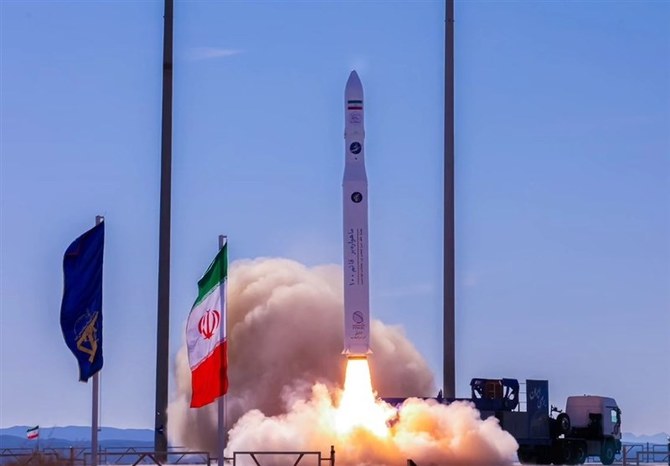
Recent reports indicate Iran is open to signing a nuclear deal with the United States, with conditions centered on sanctions relief. On May 15, 2025, a top adviser to Iran’s Supreme Leader, Ali Shamkhani, told NBC News that Tehran is ready to agree to a deal with President Donald Trump, emphasizing Iran’s willingness to forgo highly enriched uranium in exchange for lifting economic sanctions.
President Trump, speaking on the same day, claimed the U.S. is “very close” to securing a deal, stating Tehran had “sort of” agreed to terms, though a senior Iranian official countered that no new U.S. proposal has been received and Iran will not compromise on its right to enrich uranium. The talks, held indirectly in Oman, have seen progress, with the fourth round concluded on May 11, 2025.
Both sides described the negotiations as “difficult but useful,” with further discussions planned. Iran has proposed a novel approach: a joint nuclear-enrichment venture involving regional Arab countries like Saudi Arabia and the UAE, with American investment, to address U.S. concerns while maintaining its enrichment program at civilian levels (3.67% purity, as per the 2015 deal). However, the U.S. has maintained a hardline stance, with envoy Steve Witkoff insisting on “zero enrichment” and dismantlement of key facilities, a position Iran considers non-negotiable.
Register for Tekedia Mini-MBA edition 19 (Feb 9 – May 2, 2026).
Register for Tekedia AI in Business Masterclass.
Join Tekedia Capital Syndicate and co-invest in great global startups.
Register for Tekedia AI Lab.
Despite public optimism from Trump and U.S. officials, significant gaps remain. Iran insists on its right to civilian enrichment under the Non-Proliferation Treaty, while the U.S. demands a complete halt to enrichment activities. Tensions are compounded by Trump’s “maximum pressure” sanctions, including recent measures targeting Iranian oil exports, and threats of military action if diplomacy fails.
Arguments reflect mixed sentiments, with some suggesting a deal is near, while others highlight skepticism due to past U.S. withdrawal from the 2015 JCPOA and ongoing regional rivalries. The feasibility of Iran’s proposed regional consortium is questionable, given the lack of diplomatic relations between the U.S. and Iran for 45 years and the reluctance of American firms to invest in Iranian facilities.
Additionally, Israel’s threats to strike Iran’s nuclear sites and regional volatility, including the Israel-Hamas conflict, complicate negotiations. While both sides express a preference for diplomacy, the deep divide over enrichment and sanctions relief suggests a deal is not imminent without significant concessions. A potential Iran-U.S. nuclear deal in 2025 carries significant implications across geopolitical, economic, and security dimensions.
A deal could mark a rare diplomatic breakthrough, easing 45 years of hostility, though deep mistrust and lack of direct ties limit broader reconciliation. Failure to reach an agreement risks escalating tensions, potentially leading to U.S. or Israeli military action. Iran’s proposed joint nuclear venture with Saudi Arabia and the UAE could reshape Middle Eastern alliances, fostering cooperation but also complicating U.S.-Israel relations if Tehran retains enrichment capabilities. Saudi Arabia’s interest in its own nuclear program may intensify if Iran’s program persists.
A deal could bolster U.S. influence in the Middle East under Trump’s administration, countering China and Russia’s growing ties with Iran. Conversely, a failure could push Iran closer to Moscow and Beijing, strengthening their regional foothold. Lifting U.S. sanctions would unlock Iran’s oil exports and frozen assets (estimated at $100 billion), boosting its economy but flooding global oil markets, potentially lowering prices. This could strain OPEC+ cohesion, particularly with Saudi Arabia.
Increased Iranian oil supply could reduce energy costs, benefiting consumers but pressuring U.S. and other oil producers. American investment in a regional nuclear consortium, if pursued, could open new markets but faces domestic political resistance. A deal could stabilize the region, encouraging foreign investment in Gulf states, but ongoing U.S.-Iran tensions or Israeli opposition could deter investors.
Security Implications
A deal capping Iran’s enrichment at civilian levels (3.67%) could reduce proliferation risks, but U.S. demands for “zero enrichment” are unlikely to be met, raising concerns about Iran’s latent nuclear weapons capability. Failure to agree could accelerate Iran’s path to a bomb, with breakout time estimated at weeks by some analysts. A deal might de-escalate proxy conflicts involving Iran-backed groups (e.g., Hezbollah, Houthis), but Israel’s vowed strikes on Iranian facilities could spark a wider war, drawing in the U.S. and Gulf states.
Success could strengthen the Non-Proliferation Treaty, while failure might weaken it, encouraging other states (e.g., Saudi Arabia, Turkey) to pursue nuclear programs. A deal could bolster moderates in Tehran but faces resistance from hardliners wary of U.S. intentions post-2018 JCPOA withdrawal. Economic gains might stabilize the regime amid domestic unrest. Trump could tout a deal as a foreign policy win, but concessions to Iran risk backlash from Republican hawks and pro-Israel groups. Failure could fuel accusations of diplomatic weakness.
Israel’s opposition and potential sabotage, alongside Russia and China’s influence on Iran, could derail negotiations. The Israel-Hamas conflict adds volatility. Even if signed, a deal’s durability is questionable given the U.S.’s 2018 JCPOA exit and upcoming U.S. elections in 2026, which could shift policy.
In summary, a deal could stabilize the region, boost Iran’s economy, and curb nuclear risks, but entrenched mistrust, regional rivalries, and domestic politics on both sides pose significant hurdles. Failure risks escalation, with broader consequences for global security and energy markets.



